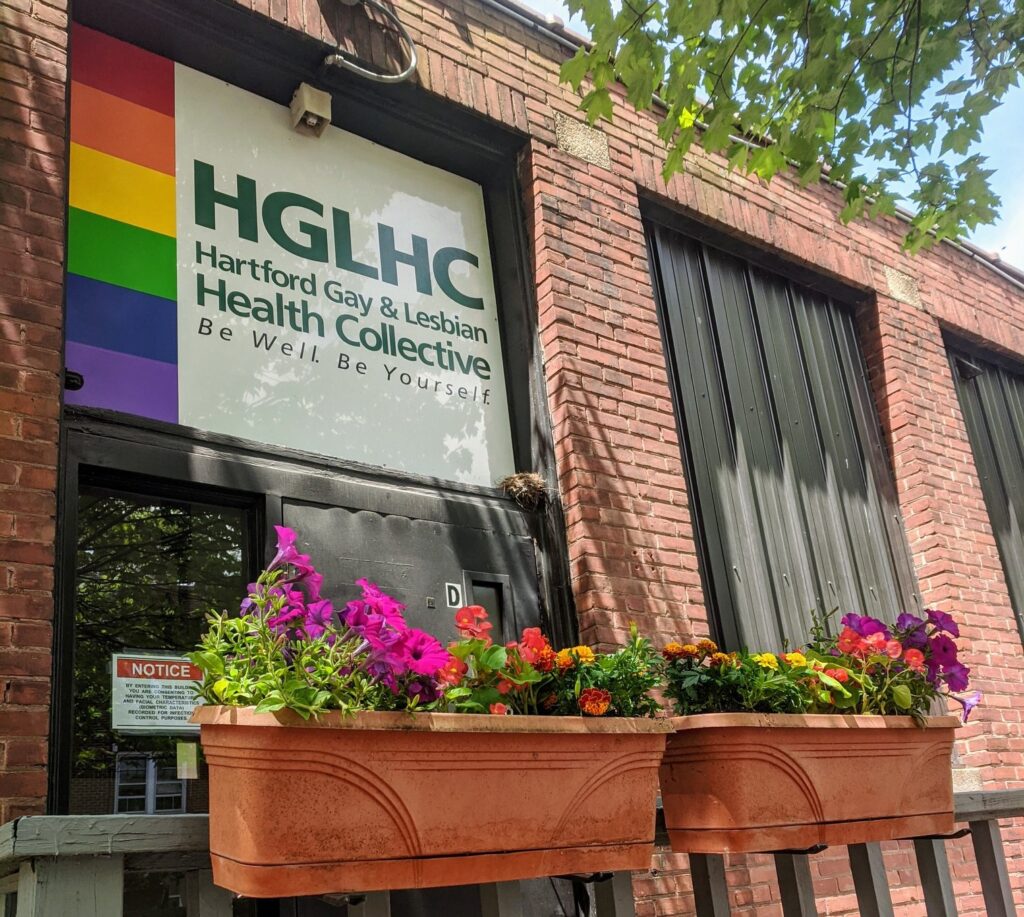Forty years ago in 1983, as HIV/AIDS was devastating the LGBTQ+ community, a group of volunteer healthcare professionals and supporters came together to form the Hartford Gay & Lesbian Health Collective (HGLHC). Its mission has always been to provide client-centered quality services in a safe, non-judgmental environment. In the last four decades, the organization has continually worked to reflect and embrace a dynamic community with unique health concerns and challenges.
Earlier this year, David Grant took over as executive director of HGLHC with an impressive resume in LGBTQ+ social service and advocacy. He championed such efforts as Universal Basic Income, and Hartford’s Charter Revision. He also worked as special assistant to the superintendent of Hartford Public Schools.
Grant spoke with Connecticut Voice about his new role and his mission, saying that while he was still in his first 90 days with the organization at the time of our interview, he was “humbled” by what he is learning. He said that as he prepared for the organization’s largest fundraiser—One Big Event, which took place November 11—he had been in touch with people who had been involved with HGLHC through its history, and that he’s been inspired by the “stories they tell me of the incredible work the organization has done over the last 40 years.
Grant described the work of HGLHC, saying, “We don’t turn anyone away for services. Our medical department really educates about HIV and STI, prevention and offers support and treatment. We also provide basic dental services.
“We also have another site outside of Hartford in Manchester. And, through that site we have a collaboration with Advancing Connecticut Together, and we offer support groups for individuals living with H I V. We also have a food delivery service, a food pantry, and we’re implementing a workforce development program.”
It’s not all about health, however. Grant says there are support groups, gamer nights, and more. And HGLHC makes it facilities available to different community organizations. He says it’s both a way to serve the community and to bring people into the collective to learn about what it does—and how it can support other organizations’ missions.
Still, HIV remains central to the work of the HGLHC. Grant says that while treatments have been effective, transmission in some groups is at an all-time high. He cites high rates of transmission among people who identify as heterosexual over 50, in particular. So, he says, the goal is to implement “targeted outreach into those communities where we have not been in the past. “The virus,” he says, “is still very real, and more work has to be done. Transmission among individuals who are LGBTQIA-plus have gone down, but they’re definitely not where they need to be.”
As for what’s ahead as Grant settles into the role, he and his board have big plans. He says they are looking at launching services that are new to community, such as a vision center and comprehensive mental health programs, specifically for people who may have substance abuse issues. He also wants to target domestic issues including spousal abuse or parenting and child abuse, as well as issues such as anger management. “There are many issues that face our community, and the health collective should be there to support people who may not feel comfortable going into more ‘traditional’ space to receive the level of help they need.”
The HGLHC is also thinking beyond Connecticut. Grant says that he is currently putting together a delegation to travel to Washington, DC to advocate for increased federal funding for HIV spending and safe spaces for LGBTQ+ individuals. While Grant says that this is not work that the organization has typically done in the past, he believes that it is increasingly important for HGLHC to become actively involved with.
As the organization enters its fifth decade, Grant is excited about what’s ahead. Even as healthcare organizations adapt to be more inclusive and sensitive to issues faced by the LGBTQ+ communities, he says, this sensitivity is what has always characterized HGLHC. While it will continue to evolve, HGLHC has always been sensitive to the intricacies of treating its patients. “We already understand those intricacies, and we treat everyone with dignity and respect.”
You can listen to my entire conversation with David Grant on the Voice Out Loud Podcast, which you can find through CTVoice.com.









More Stories
Seasonal Impacts on Mental Health
Putting a Ring on It
Healthy, Happy, and Non-monogamous